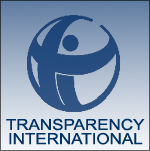Whistleblowing is widely recognized as a key tool in the prevention and detection of corruption, fraud, financial crime and other forms of wrongdoing. Whistleblowers worldwide have been responsible for saving millions of lives and billions of dollars.
Nevertheless, in most countries, whistleblowers – working both in the public and private sectors – lack adequate, reliable legal protections to shield them from retaliation and provide them with a trustworthy framework to make their disclosures. As a result, they are routinely harassed, retaliated against, physically abused or even killed. And, potential whistleblowers are inhibited from making disclosures that could result in saving money, public resources, the environment or lives.
Due, in large part, to the financial crisis and a string of major corporate scandals, the issue of whistleblowing is becoming more relevant for the private sector. Many corporate failures and scandals have been brought to the attention of investigators, regulators, journalists and NGOs as a result of people working on the inside of corporations who witnessed corruption and fraud, and who took steps to expose this wrongdoing to agencies that could remedy the problems.
Though companies are often fearful of whistleblowers and seek to silence them, they can serve as “canaries in the coal mine” – sniffing out simmering problems before they erupt. A growing number of companies are recognizing the value of whistleblowers and have put in place systems for whistleblowers to come forward, while protecting them from firing, harassment and other forms of retaliation. According to a 2012 survey by Transparency International, 82 percent of companies 105 of the largest publicly listed multinational companies now have policies on whistleblowing, and 80 percent have non-retaliation policies.
Financial accountants also recognize the value of whistleblowers. According to a 2012 survey by Ernst & Young, 40% of respondents worldwide identified whistleblowing as a highly effective tool for detecting wrongdoing.
When companies’ internal whistleblowing systems do not work, employees sometimes report wrongdoing to outside authorities, which can lead to significant fines, criminal penalties and reputational damage. In the US, in just the first two months of a new whistleblower program established to prevent financial crime, 334 people reported tips to government officials. These included allegations of insider trading, foreign corrupt practices and doctored financial statements. One whistleblower received a $31 million award in 2012 after a prominent financial services company was fined $158 million.
Large corporations, in particular those in the financial services industry, should continue to be more motivated to improve their internal whistleblower policies – to avoid unnecessary risks, penalties and negative publicity. Up until now, however, the effectiveness of these policies has been nearly impossible to gauge. In order for corporate whistleblower policies and procedures to have credibility – and for the credibility of the corporate sector itself to be restored – these policies and procedures should be subject to outside review and analysis.


